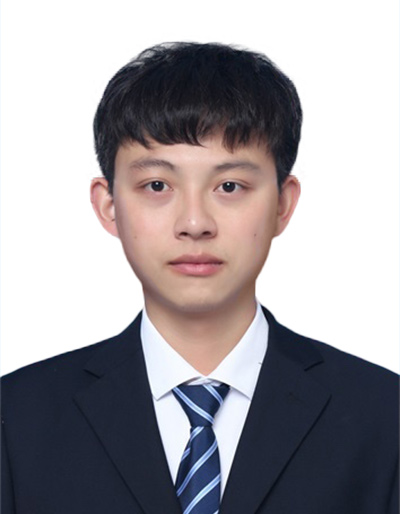壁虎仿生的智能干粘附可以按需粘附和脱粘,这在现代制造技术和工业生活中发挥着举足轻重的作用。然而,现有智能干粘附体系多用高聚物弹性体制成,这些高聚物干粘附面临两大挑战。一大挑战是长期困扰粘附领域的“粘附佯谬”[1,2]。“粘附佯谬”指的是,尽管分子之间存在较强的相互作用,即使是按照最弱的分子间相互作用——范德华力估算,物体之间的粘附强度也应该高达10 MPa,然而从常识角度看,物体之间实则难以粘附,更不会产生如此强度的粘附作用。自然界中即使是壁虎这样的“粘附大师”,其粘附强度也就100 kPa左右。导致“粘附佯谬”的主要原因之一是物体表面所存在的粗糙度阻碍了干粘附和基底之间的完全接触,与此同时,在接触过程中界面所产生的应变能也会抵消粘附作用,这导致传统弹性高聚物干粘附的粘附强度将随着表面粗糙度的增加而迅速衰减。另一大挑战则是近期引发关注的“调控矛盾”,即粘附强度和调控比之间的矛盾。实际上,越强的粘附能承受的重量越大,但是也越难按需将其粘附强度减弱从而取下。统计结果表明,粘附调控比(干粘附在强粘附状态和弱粘附调控状态下的粘附强度之比)会随着其最强粘附强度的增加而减小。可见,当下粗糙表面的“粘附佯谬”和“调控矛盾”问题仍然有待解决。

近日,新加坡南洋理工大学高华健院士课题组和夏焜讲席教授课题组研究发现,形状记忆聚合物可以用来克服粗糙表面的“粘附佯谬”和“调控矛盾”问题。该研究通过力学表征和力学建模 [3, 4]系统地研究了形状记忆聚合物在不同粗糙表面上的粘附行为,相关研究以“Overcoming the adhesion paradox and switchability conflict on rough surfaces with shape memory polymers”为题发表在顶级国际期刊Proceedings of the National Academy of Sciences上。高华健院士和夏焜讲席教授的共同指导博士生令狐昌鸿为本文第一作者;湘潭大学-南洋理工大学联合培养博士生刘杨承毅为论文第二作者;湘潭大学王秀锋教授和南洋理工大学李栋博士为共同作者;高华健院士和夏焜讲席教授为论文共同通讯作者。

Fig. 1. (A-B) Design, mechanism, and (C-D) performance of the SMP Smart Adhesive. (A) Material and adhesion characterization systems adopted in this work. (i) Chemical structures of the epoxy precursors of the SMP used. (ii) Illustrations of the cured networks and working principles of the SMP. (iii) Photograph of the clamp-mounted SMP sample held on top of a rough glass surface for the adhesion test. (B) Illustrations of the SMP adhesion on rough surfaces. (C) Adhesion strengths of SMP adhesives compared to those of adhesives made of typical elastomers on rough surfaces. The blue and red spheres represent the R2G and rubbery-state adhesion of SMP, respectively, measured on glass substrates (preload = 255 kPa). The other dots are adhesion strength values reported in the literature for elastomeric adhesives. (D) Adhesion switchability versus adhesion strength of the SMP compared to typical elastomers. The blue spheres represent the adhesion switchability of SMP adhesives and orange squares the adhesion switchability of elastomeric adhesives reported in the literature. The green area shows the range of adhesion switchability and adhesion strength of gecko.
References
[1] Tiwari, A., Wang, J. and Persson, B.N.J., Adhesion paradox: Why adhesion is usually not observed for macroscopic solids. Physical Review E, 2020. 102(4): p. 042803.
[2] Kendall, K., Introduction to molecular adhesion and fracture: The adhesion paradox, in Molecular adhesion and its applications: The sticky universe. 2001, Springer US: Boston, MA. p. 3-23.
[3] Linghu, C., et al., Mechanics of shape-locking-governed r2g adhesion with shape memory polymers. Journal of the Mechanics and Physics of Solids, 2023. 170: p. 105091.
[4] Linghu, C., et al., Overcoming the adhesion paradox and switchability conflict on rough surfaces with shape-memory polymers. Proceedings of the National Academy of Sciences, 2023. 120(13): p. e2221049120.
[5] Linghu, C., et al., Universal SMP gripper with massive and selective capabilities for multiscaled, arbitrarily shaped objects. Science advances, 2020. 6(7): p. eaay5120.
原文链接:https://doi.org/10.1073/pnas.2221049120
作者简介

令狐昌鸿,浙江大学工程力学学士、浙江大学固体力学硕士、新加坡南洋理工大学固体力学博士生,导师夏焜教授和高华健教授。主要从事智能界面粘附力学及其应用、粘附力学、断裂力学、智能软物质力学及其应用等研究。研究工作主要基于界面力学、物理和化学原理,利用智能材料可调特性,揭示不同条件下界面粘附强度强弱控制的机理,探索界面粘附强度调控的规律,并基于此研发自适应界面粘附系统,集成并应用于软体机器人、机械手、无人机、智能可穿戴柔性电子器件、微纳组装、巨量微转移、医用胶带、超材料等领域。拥有中国国家发明专利10项,实用新型专利8项;于Elsevier发表专著章节一章;在JMPS、EML、IJSS、Science Advances、Nature Communications、PNAS、National Science Review、npj Flexible Electronics、Advanced Functional Materials、Soft Matter等国际知名期刊上发表SCI论文20多篇,被SCI论文引用677次。

刘杨承毅,湘潭大学博士生,导师王秀锋教授。主要从事可穿戴柔性传感器件相关的表面润湿性调控和智能粘附构建等研究。在JMPS、IJSS、PNAS、ACS Nano、Advanced Functional Materials、Advanced Materials Technologies、Chemical Engineering of Journal等国际知名期刊上发表SCI论文10多篇,其中两篇入选ESI高被引论文,相关研究成果得到国内外媒体的广泛报道。获得了中国力学学会首届全国力学博士生学术论坛优秀报告奖,2021-2022年度湘潭大学博士研究生国家奖学金等奖励。并获得国家留学基金委资助赴新加坡南洋理工大学机械与航空工程学院夏焜老师课题组联合培养。
- 哈工大刘宇艳教授/张东杰副教授团队 AFM:基于相分离双网络聚合物实现形状恢复起始温度的可编程调控 2026-01-12
- UCLA 金丽华教授团队 AFM:通过非平衡过程实现形状记忆聚合物可编程多模态形状演化 2025-12-23
- 东北农大张海洋团队 Small:受章鱼启发的刚度可调的智能粘附剂 - 用于空气及水下不平整表面的粘附 2025-09-02
- 武汉大学薛龙建课题组《Small》:模仿爬山虎和壁虎,成功实现在不同粗糙表面的光控可逆黏附 2019-11-20
- 华南师大兰亚乾/陈宜法团队 Nat. Commun.:一种可加工的类蜘蛛网粘合剂 2025-05-28
- 大连理工大学徐铁齐教授课题组 JACS:通过熵调控设计的可化学循环聚合物 - 具有高气体阻隔性和粘附强度的螺环取代戊内酯基聚酯 2025-02-12
- 苏州大学严锋教授 JACS:具有生物相容性可逆粘附离子凝胶 2024-05-12
